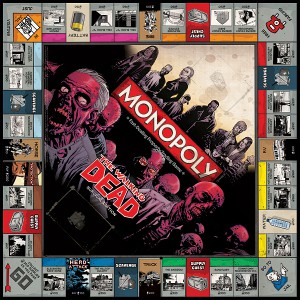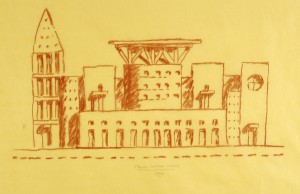In Professor Robert Leston’s upper-level course ENG 3402 Topics in Literature on Vampires and Zombies in Popular Fiction and Film, students explored the popularity of the undead in popular literature, film, and TV. Using a hybrid course format, in which students met once per week face-to-face and numerous times online, Professor Leston depended on his OpenLab class website for discussion and the submission of reading responses for fellow students to read and comment on. The OpenLab became an online meeting space to explore the fascination with vampires, werewolves, zombies, and monsters in American popular culture.
From reading classics such as Bram Stoker’s Dracula, Franz Kafka’s The Metamorphosis and contemporary academic critiques to watching excerpts of film and TV like Shaun of the Dead and Buffy the Vampire Slayer, students submitted reflections and critical responses to readings and viewings on the class website in order to create a virtual ‘reading journal.’ Open to all classmates and the larger CityTech community, the class website extended the learning experience beyond the walls of the classroom and invites outsiders to look in. Students used the OpenLab to access readings and media clips too as well as to stay on top of the work of fellow students in order to avoid overlap with other student projects as each took turns to lead group discussions as ‘expert readers.’ The OpenLab offered a vast range of interaction for professor and students in a hybrid class.
Take a peek at a student’s ‘reading journal’, another student’s response to a reading that contrasts Steve Jobs the vampire to Bill Gates the zombie, and a selection of class readings and media clips.






